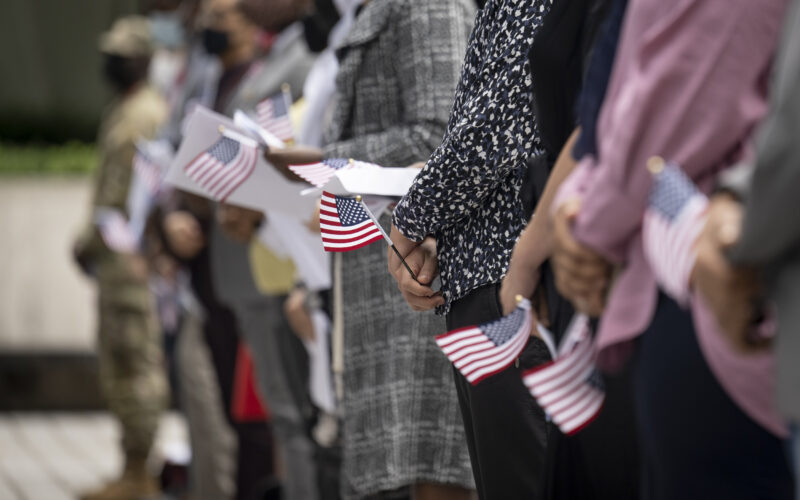President Donald Trump recently asked the U.S. Supreme Court to uphold an executive order that would end birthright citizenship. While the outcome remains uncertain, it appears increasingly likely that some form of change may emerge.
Laws and legal interpretations evolve over time, and the topic has already sparked widespread discussion both within the U.S. and internationally, suggesting that there is a non-zero chance that some changes could occur.
On Sept. 26, the administration asked the court to allow the order to take effect, which would prevent children born in the U.S. to parents who are in the country illegally or temporarily from automatically becoming U.S. citizens.
This move directly challenges the 14th Amendment’s Citizenship Clause, which states, “All persons born or naturalized in the United States, and subject to the jurisdiction thereof, are citizens of the United States and of the State wherein they reside.” It also goes against a century-old Supreme Court precedent established in United States v. Wong Kim Ark.
The Trump administration argues that limiting birthright citizenship would reduce so-called “birth tourism” and discourage illegal immigration by removing what it describes as a perverse incentive.
Justice Department filings maintain that the 14th Amendment was not intended to grant unconditional citizenship to children of visitors or undocumented migrants.
Critics, however, note that the 14th Amendment’s Citizenship Clause was initially adopted after the Civil War to ensure that formerly enslaved people born in the U.S. would automatically become citizens, securing their legal status and rights.
Civil liberties groups and many legal scholars contend that the order conflicts with both the Constitution and the long-standing Wong Kim Ark decision and could create stateless children and widespread legal uncertainty.
As National Legal Director of the American Civil Liberties Union Cecillia Wang warned, the administration appears poised to “go against the U.S. Constitution, a 127-year-old Supreme Court precedent and an act of Congress.”
Any effort to limit unconditional ‘jus soli’ — citizenship by birthplace — should also be understood in a global context.
Only a small number of countries, including the U.S., Canada and some Latin American nations, grant automatic citizenship to anyone born on their soil.
Most countries in Europe and Asia rely primarily on ‘jus sanguinis,’ or citizenship through parental descent. In these systems, a child typically acquires nationality only if one or both parents are citizens or meet long-term residency requirements.
Beyond theory, the human consequences of revoking birthright citizenship are significant. According to the Department of Homeland Security, Jenny Carolina Lopez-Villela illegally entered the U.S. three times — September 2019, March 2021 and August 2021. After her first entry, she and her older daughter were deemed inadmissible and issued final removal orders in March 2020.
When taken into ICE custody in April 2025, she chose to bring her younger daughter — a U.S. citizen — to Honduras, presenting a valid passport.
Coverage from CNN highlights the difficult choices families face: if U.S.-born children lost automatic citizenship, authorities would have to either deport parents and separate families or allow noncitizen parents to stay with citizen children. Both outcomes pose serious ethical, legal and social challenges.
Constitutionally, the stakes are high. Courts have long interpreted the 14th Amendment to guarantee birthright citizenship for nearly all children born on U.S. soil, with exceptions only for diplomats or hostile occupying forces.
Overturning or narrowing this interpretation would not only reshape immigration policy but also force courts to read the Citizenship Clause much more narrowly than in the past, introducing uncertainty across immigration enforcement, social services and education law.
The discussion now extends beyond politics to questions of belonging. Many countries have already revised their policies on birthright citizenship, demonstrating that legal frameworks can adapt over time.
In the U.S., the ultimate outcome will depend not only on judicial interpretation but also on how society perceives and responds to these changes.
Above all, the focus should remain on ensuring that those born in the country can feel connected, contribute meaningfully and participate fully in society, even as the legal landscape continues to evolve.






